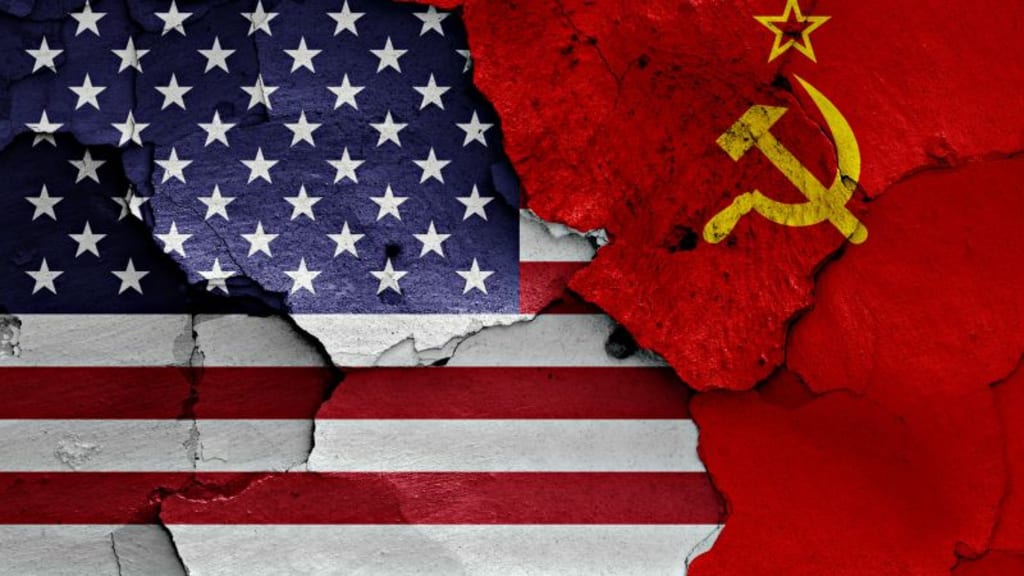Two Allies
Why The World Doesn't Change

In the face of an overwhelming threat to peace, justice and freedom arising from a militaristic and twisted foe, two great powers overcome their differences and follow the doctrine of "The enemy of my enemy is my friend". What follows is economic cooperation, supply of vital equipment and machinery which furthers the war effort against the common enemy and leads, in the end, to victory over the dreaded force. Soon after this success however, the unthinkable happens, the two friends suddenly grow suspicious of each other. What once was an alliance with a common cause now more then ever seems cold, and the threat of conflict seems to hang in the air. Subsequently they begin operations to hamper the other, through foreign intervention, military activity and the spread of propaganda and influence, the two former allies vie for control and dominance over the other. If this story sounds familiar to you and you probably have reasonably assumed that I am referring to US-Soviet relations during, and after World War II, you would be wrong. The story I am referencing is actually a story which takes place around 480BC, in Greece. The Achaemenid Empire ruled the Middle East, its armies numbered in the hundreds of thousands and its territories stretched from Greece in the West, to India in the East. In 490BC, the hegemon of the east turned its attention towards the Greek city-states, and began its second invasion of Greece. Being confronted with an almost insurmountable force the two most powerful city-states, Athens and Sparta, banded together in a Hail Mary attempt at defending their homeland. This partnership resulted in the defeat of the Persian forces and their retreat from Greece. In the face of this victory, one would assume that all was well. Baffingly however, soon after the enemy had been repelled, old rivalries reappeared. As Athenian influence and power began to steadily increase as it expanded its dominion over most of Greece, Sparta became very weary of its former ally and so embarked on its own quest for allies against Athens, and military preparation. With this course of action both sides became more and more entrenched, tensions rose higher and higher, and eventually cause one of the most famous Greek conflicts, the Peloponnesian War. The pattern of this conflict, and the parallels that can be drawn to the dynamics of the Cold War are striking. The time between the Peloponnesian War, and the Cold War was over two thousand years, yet the mechanics of international relations don't seem to have changed much. Has the human race actually learned from its experience, or is it bound to repeat these patterns constantly. What conclusions could be drawn from this? Not every alliance is doomed to follow this course. The main issue with both of these scenarios is that the two main members had completely different ideologies. Sparta was a militaristic dictatorship, whereas Athens, was a trade-based democracy. The two had fundamental differences in values and as soon as the Persian threat had been eliminated, these came to the forefront and boiled over into conflict. Similarly, the USA and the Soviet Union were incompatible ideologically and so once Nazi Germany had been dealt with, they became suspiscious of each others intentions and the result was the Cold War. The lesson here is that the only reliable alliances are formed between nations that have similar foundations in terms of values, traditions and beliefs. NATO has become one of the strongest alliances in the world and most of the countries while having differences, agree on the fundamental value of freedom, democracy and peace.





Comments
There are no comments for this story
Be the first to respond and start the conversation.